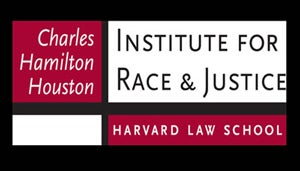On May 16, 2010, the Supreme Court ruled that juveniles who commit crimes in which no one is killed may not be sentenced to life in prison without the possibility of parole. Justice Anthony Kennedy ’61 wrote the opinion for a 6-3 Court, citing a brief submitted by the Charles Hamilton Houston Institute at HLS, the NAACP Legal Defense Fund and the National Association of Criminal Defense Lawyers.
Referring to that brief, Kennedy emphasized that “the features that distinguish juveniles from adults also put them at a significant disadvantage in criminal proceedings. Juveniles mistrust adults and have limited understandings of the criminal justice system and the roles of the institutional actors within it. They are less likely than adults to work effectively with their lawyers to aid in their defense.”
The case involved Terrance Graham, who in 2003, at age 16, participated in a restaurant robbery in Florida. Graham was sentenced to a year in jail and three years’ probation for that crime. The next year, he and two others committed a home invasion robbery. In 2005, a judge sentenced Graham to life for violating his probation.
Kennedy concluded that “[w]ith respect to life without parole for juvenile nonhomicide offenders, none of the goals of penal sanctions that have been recognized as legitimate—retribution, deterrence, incapacitation, and rehabilitation—provides an adequate justification.”
Dissenting were Justices Clarence Thomas, Samuel Alito Jr. and Antonin Scalia ’60. Chief Justice John G. Roberts Jr. ’79 voted with the majority, saying that the inmate who brought the appeal had received a sentence so harsh that it violated the Constitution. But he endorsed only a case-by-case approach in deciding whether a life sentence was so disproportionate to the crime as to violate the Eighth Amendment.
According to the Charles Hamilton Houston Institute, before the ruling, 129 juveniles in America were serving life without the possibility of parole for non-homicide offenses. None of these children is expected to be immediately released; Kennedy noted that the Court’s decision did not necessarily mean that states needed to release juvenile offenders sentenced to life imprisonment, but rather that the Eighth Amendment requires States to “give defendants like Graham some meaningful opportunity to obtain release based on demonstrated maturity and rehabilitation.”
The Charles Hamilton Houston Institute for Race and Justice, directed by Professor Charles Ogletree Jr. ’78, regularly files both amicus and direct representation briefs on behalf of the indigent accused in state and federal courts across the country.
